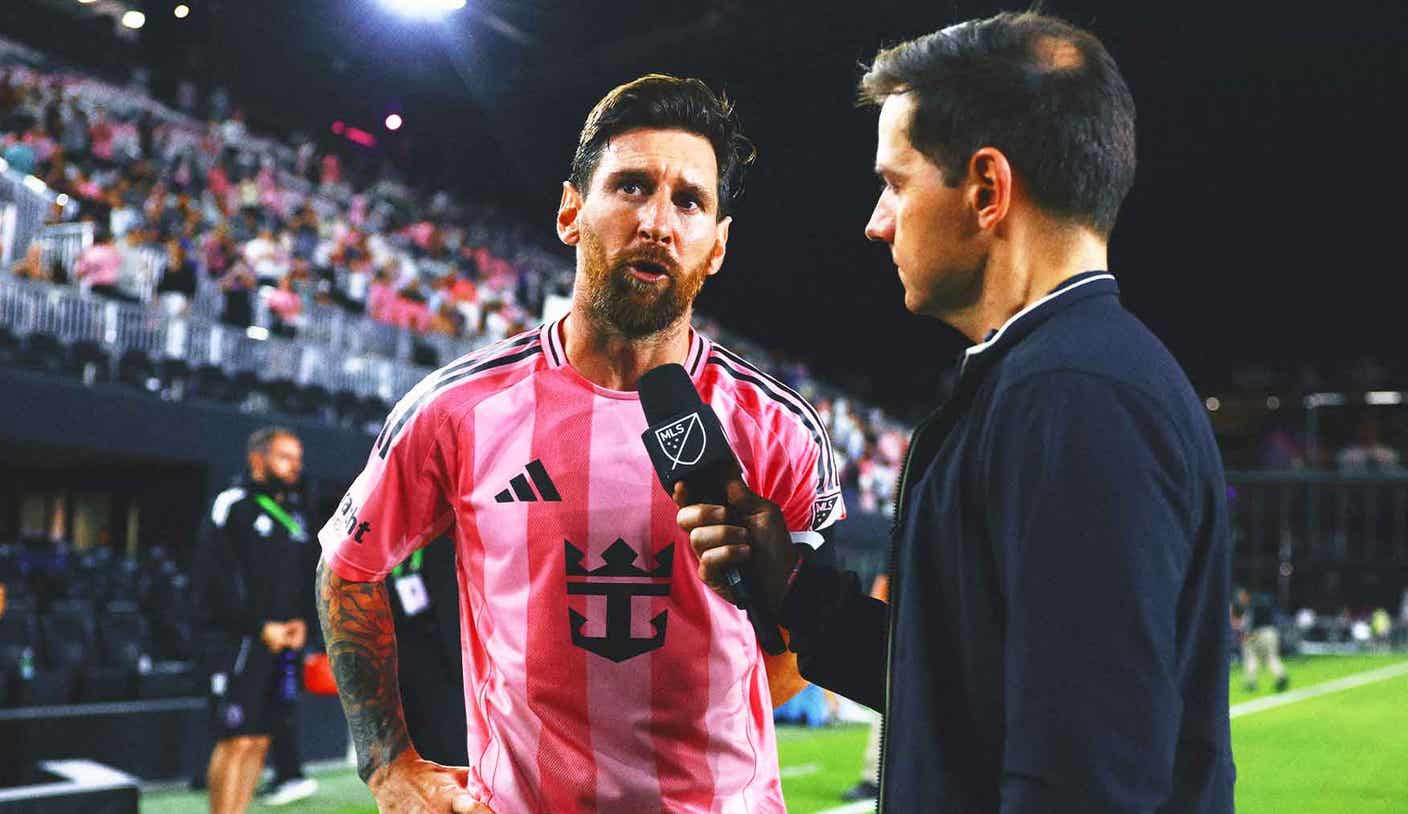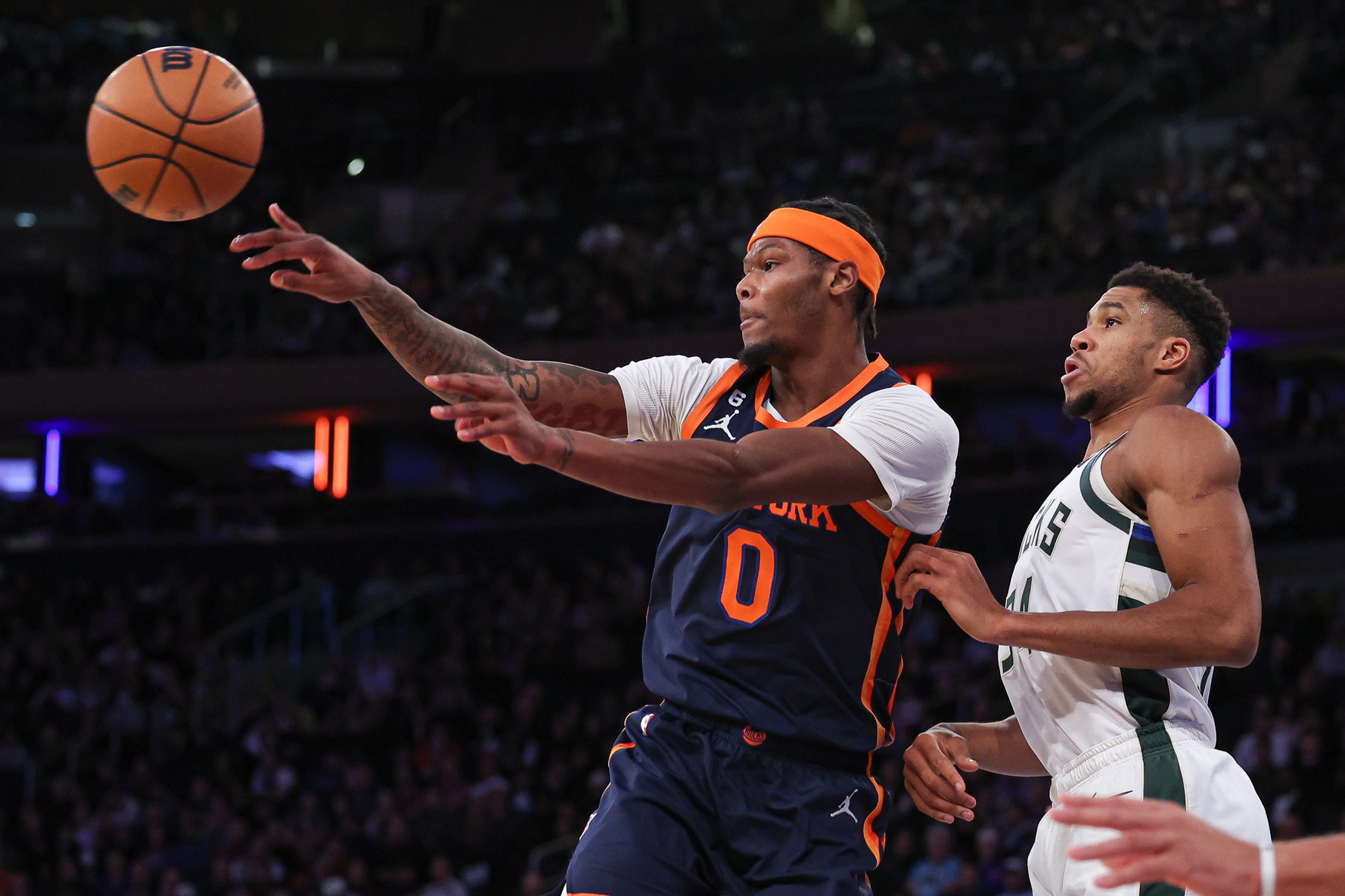3 Reasons Messi And Inter Miami Could Regress In 2025
Lionel Messi, left, and Luis Suarez warm up before a preseason friendly match against Club America … [+]
For a club that set an all-time MLS points record, won a major trophy and saw Lionel Messi win the league MVP award, the feel around Inter Miami this preseason isn’t exactly what you’d expect.
First came the resignation of manager Tata Martino – a move he insisted was for personal reasons but that some still believe was coerced. Club sporting director Chris Henderson departed for Atlanta not long after, and numerous reports this week have Henderson’s replacement Raul Sanllehi being demoted in favor of Guillermo Hoyos.
Whether or not it’s Messi who has led the shakeup, it points to a club culture that was not satisfied winning only one major trophy out of the four it competed for in 2024.
But the reality is that an improvement in 2025 is far from a guarantee for the Herons, who will compete for five trophies this coming season. A regression could be just as likely for the sixth-year MLS club.
Here’s three reasons Miami could actually take a step back in 2025.
Martino and Henderson’s MLS Experience Mattered
Both Hoyos and incoming manager Javier Mascherano have longstanding and deep relationships with Messi. Hoyos was one of Messi’s first coaches at the FC Barcelona academy. Mascherano was a long-time teammate on the Argentina men’s national team and FC Barcelona.
But neither have much experience dealing with the oddities of MLS, a league that presents unique challenges for both managers and sporting directors.
For managers, the biggest adaptation is managing player workload. It’s not that there are more matches in MLS. But for the level of parity between the top and bottom teams in the league means there are very few true soft spots on the schedule. And the intracontinental travel the league requires can be far more wearing than the average domestic or continental itinerary in Europe.
For sporting directors, the minutia of the roster rules and salary structure is far more complicated than most European leagues. If any club should know this, it’s Miami – one that previously was sanctioned for violating those rules under Paul McDonough, its first top personnel executive.
Martino and Henderson were both viewed leaguewide as well-above-average at their jobs, who had plenty of previous experience managing the league’s demands. Martino had won an MLS Cup in two seasons at Atlanta. Henderson was revered for his previous work in the front office of the Seattle Sounders, and he managed a Miami roster in 2024 that was in a constant state of evolution and improvement.
Hoyos and Mascherano have a far more elite pedicgree, but will have to get up to speed on MLS nuances to ensure a seamless transition from that departed duo.
The Unsustainable Part of Miami’s 2024 Season
The main thrust of the argument for Messi not winning the MLS MVP award last season was that he simply didn’t play enough matches, and that Miami actually fared nearly as well when he was absent. That’s only part of the story though.
It’s true that Miami only earned fractionally more points per game with Messi on the field than without him. But their ability to take 2.13 points per match without him was most remarkable considering that they only played to a +4 total goal differential when Messi was not on the field.
Maybe Miami wasn’t lucky per se, but they were certainly could at earning some results that perhaps their play didn’t merit. That’s generally not something teams can replicate year over year. So if Messi misses a lot of time again, expect the sledding to be much tougher, which could lead to a lower regular season finish and a tougher playoff path.
The Veteran Core Is … More Veteran
With veteran players, there is always the risk that a gradual age-related decline will suddenly accelerate. And that risk is magnified on Miami because of the number of veterans they rely on.
Six of Miami’s 10 minutes leaders last season were age 30 or older, with five of those returning this season. Messi will be 38 this June, and the former FC Barcelona teammates who accompany him are in the same ballpark; Luis Suarez is already 38, Sergio Busquets is 36 and Jordi Alba is 35.
While Messi was the maestro, Miami needed all four functioning at a high level to pull off their record-setting season. A sudden more severe decline for even half of that quartet could spell a significant decrease in overall Miami quality.

:no_upscale()/cdn.vox-cdn.com/uploads/chorus_image/image/72516830/1572607521.0.jpg)

